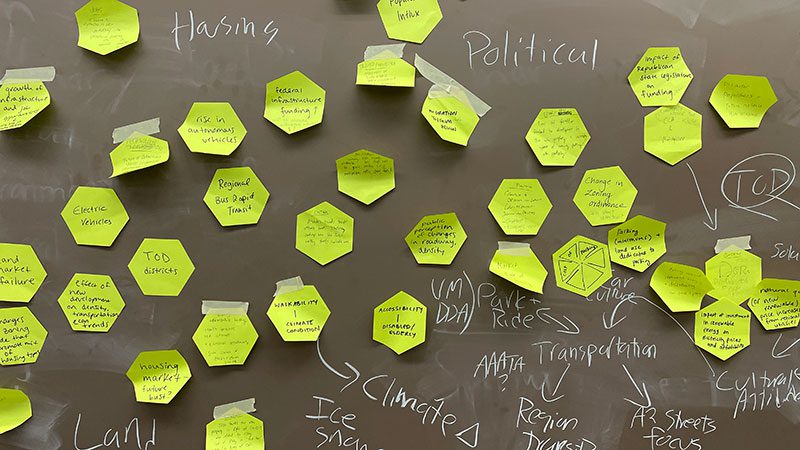
Goodspeed Wins 2022 Curriculum Innovation Award
Robert Goodspeed, associate professor of urban and regional planning, has been recognized by the Association of Collegiate Schools of Planning (ACSP) for his course Scenario Planning. Each year, the Curriculum Innovation Award honors four courses for designing accessible, engaging, and effective learning experiences for students in the urban planning field.
Scenario Planning is a semester-long intensive on scenario planning methods, one of the only urban planning courses that combines the explicit teaching of the method with hands-on techniques. The course consists of a seminar series and a hands-on, collaborative project designed to mirror real-life scenario planning practices. It is structured to encourage students to take on a reflective practice towards urban planning and provide the technical skills for students to implement their ideas in a professional setting.
The project focuses on issues within the City of Ann Arbor, and covers three modules: (1) background and stakeholder research, (2) developing scenario narratives, and (3) modeling land-use scenarios. Students combine their local and experiential knowledge of Ann Arbor with that of invited community members and the case studies taught in seminar sessions, synthesizing a breadth of methods and perspectives. The course culminates with students presenting their projects to a group of invited stakeholders and guests.
The course shares the value of community resilience through its emphasis on key planning issues of climate resilience and spatial inequities. In addition, it touches on topics from fields such as landscape design, management, and landscape ecology to promote the interdisciplinary nature of scenario planning and its application in fields outside urban planning.
Goodspeed’s teaching and research focus on opportunities to improve professional planning methods in areas such as collaborative planning, urban informatics, and scenario planning theory and methods. This work culminated in the book Scenario Planning for Cities and Regions: Managing and Envisioning Uncertain Futures (Lincoln Institute of Land Policy, 2020). He has engaged in collaborative research projects focusing on mobility, evictions, green infrastructure, groundwater planning, and racially restrictive covenants.









